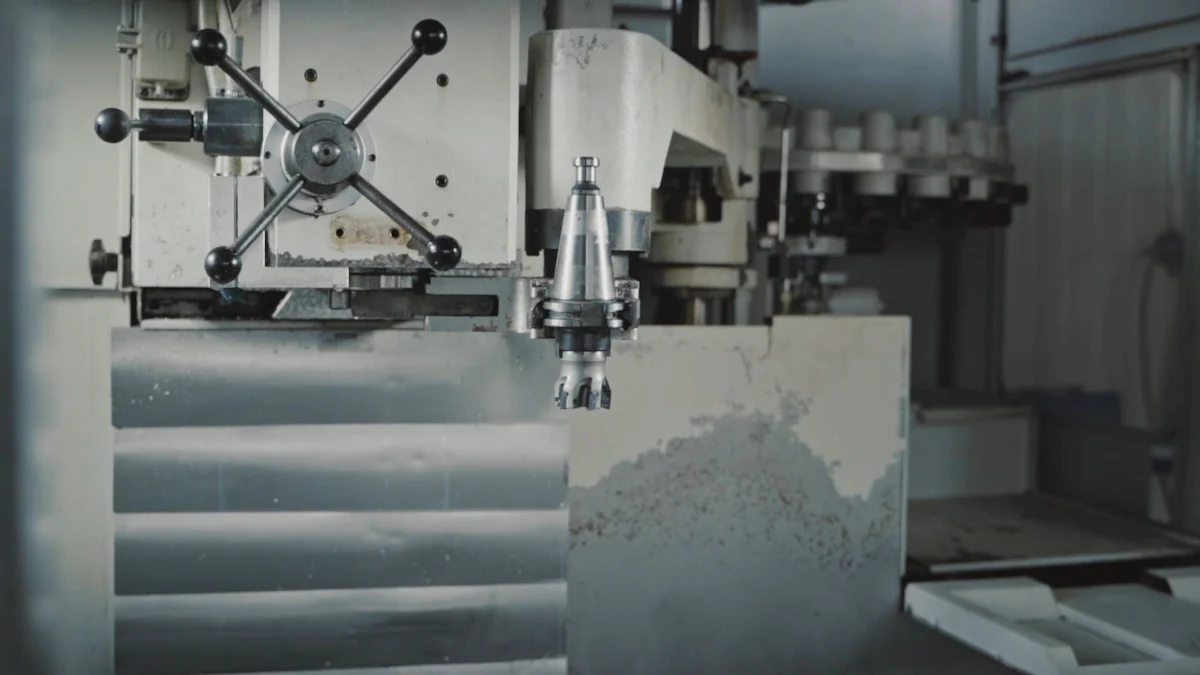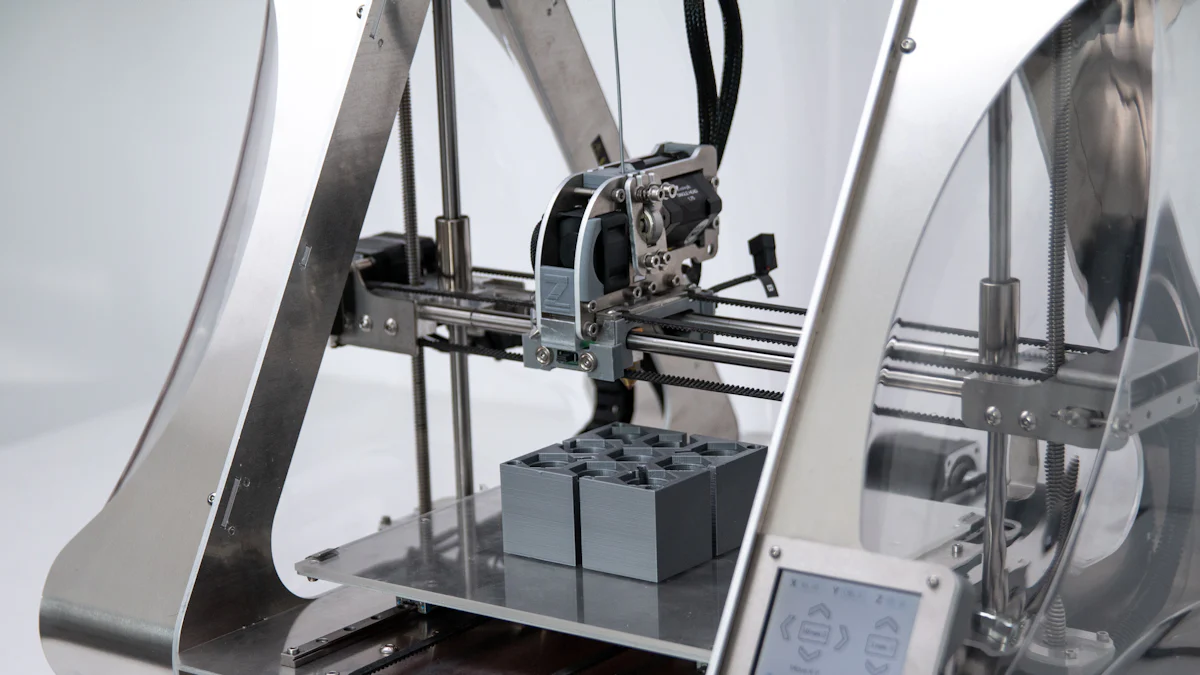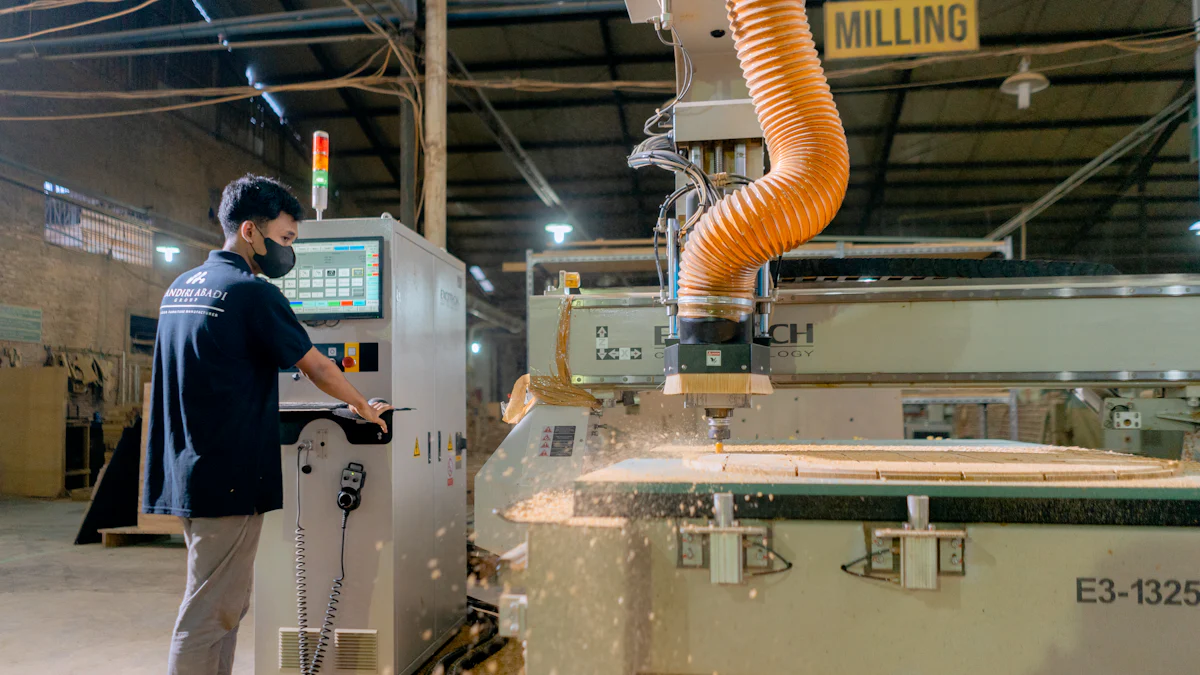The Inventor Behind CNC Machining: John T. Parsons

CNC machining is a cornerstone in modern manufacturing, revolutionizing the way industries produce goods. This technology, pioneered by inventor John T. Parsons, enhances precision and efficiency, allowing manufacturers to create complex designs with minimal waste. CNC machines operate autonomously, reducing human error and operational costs. Parsons' vision and innovation laid the groundwork for this revolutionary technology, which has become an essential tool in manufacturing, enabling industries to meet market demands with unparalleled accuracy and speed.
Early Life and Career of John T. Parsons
Beginnings in His Father's Factory
John T. Parsons' journey into the world of manufacturing began at a young age. He grew up in Michigan, where his father owned a factory. This environment provided him with early exposure to the intricacies of manufacturing processes. Working in his father's factory, Parsons gained firsthand experience in the production of goods, which sparked his interest in the field. The family business played a crucial role in shaping his career path, instilling in him a deep understanding of manufacturing operations.
Initial Career Path
Parsons' educational background laid the foundation for his future endeavors. He pursued studies that equipped him with the necessary skills to excel in the manufacturing industry. His early work experiences further honed his abilities, allowing him to transition seamlessly into the field. Parsons' innovative mindset led him to envision new concepts in manufacturing, particularly in metalworking using numerical control. His pioneering spirit drove him to explore computer methods to solve machining problems, such as the complex curves of helicopter rotor blades.
Parsons' career spanned an impressive 60 years, during which he consistently sought to improve all phases of manufacturing. His contributions extended beyond technological advancements; he also played a significant role in labor negotiations and the development of unique manufacturing processes. Parsons' dedication to creative problem-solving and his visionary approach to manufacturing set the stage for the revolutionary technology of CNC machining.
Development of Numerical Control

Collaboration with Frank L. Stulen
John T. Parsons, a visionary inventor, embarked on a groundbreaking journey in the late 1940s. He collaborated with Frank L. Stulen, an aircraft engineer, to conceptualize numerical control. This partnership marked a pivotal moment in the history of CNC machining. Together, they explored the potential of using numerical data to control machine tools. Their innovative approach aimed to enhance precision and efficiency in manufacturing processes.
"The collaboration between Parsons and Stulen was a perfect blend of creativity and technical expertise," noted a contemporary engineer. "Their combined efforts laid the foundation for modern CNC machining."
The dynamics of their partnership played a crucial role in the development of this revolutionary technology. Parsons brought his visionary ideas, while Stulen contributed his technical expertise. This synergy resulted in the creation of a system that would transform manufacturing forever.
Creation of the First Numerical Control Machine
In 1949, Parsons and Stulen achieved a significant milestone. They developed the first numerical control machine, a groundbreaking invention that utilized punch cards to direct machine movements. This innovation marked the birth of CNC machining, a technology that would revolutionize the manufacturing industry.
The use of punch cards in the machine represented a technological leap forward. These cards encoded precise instructions, allowing machines to perform complex tasks with unparalleled accuracy. This method eliminated the need for manual intervention, reducing errors and increasing efficiency.
Parsons' invention of the numerical control milling machine under a US Air Force contract showcased his pioneering spirit. His work not only transform manufacturing processes but also set the stage for future advancements in CNC machining. The impact of his invention continues to resonate in various industries, highlighting the enduring legacy of this remarkable inventor.
Impact of Parsons' Work

Transition from Craft to Science
John T. Parsons, the inventor behind CNC machining, transformed manufacturing from a craft into a precise science. His innovations allowed for unprecedented precision and efficiency in production processes. CNC machining, with its computer-controlled operations, enabled manufacturers to produce intricate designs that were previously impossible with manual methods. This shift significantly reduced human error and operational costs, making manufacturing more reliable and cost-effective.
The influence of Parsons' work extended beyond individual factories. It played a crucial role in the second industrial revolution, where technology began to dominate traditional manufacturing methods. CNC machining became a cornerstone of this transformation, allowing industries to meet the growing demands of the market with speed and accuracy. The ability to produce complex parts with tight tolerances and increased repeatability revolutionized the manufacturing landscape.
Broader Implications
The adoption of CNC machining spread rapidly across various industries. In aerospace, for example, CNC machining facilitated advancements by enabling the production of components essential for the safety and functionality of aircraft. The technology's precision allowed for the development of intricate designs that enhanced the performance and reliability of aerospace vehicles.
CNC machining also became the standard in other sectors, such as automotive, defense, medical, and aviation. Its efficiency and cost benefits made it an attractive option for companies looking to improve their manufacturing processes. The global CNC machine market is projected to reach nearly $129 billion by 2026, highlighting the growing importance of this technology in modern industry.
The long-term effects of CNC machining on manufacturing processes are profound. As engineers continue to refine CNC machinery, more companies recognize its advantages for their projects. The accuracy, precision, and speed of CNC machines have significantly improved over the years, leading to higher-quality results and improved workflow efficiency. These advancements ensure that CNC machining remains a vital tool in the manufacturing sector, driving innovation and growth.
Parsons' Legacy
Recognition and Awards
John T. Parsons, the inventor behind CNC machining, received numerous accolades for his groundbreaking contributions. His work transformed manufacturing processes and earned him significant recognition. In 1968, the Numerical Control Society honored him with the first Joseph Marie Jacquard Memorial Award. This prestigious award acknowledged his pioneering efforts in numerical control technology.
Numerical Control Society: "In 1968, he was honored with the first Joseph Marie Jacquard Memorial Award from the Numerical Control Society."
The Society of Manufacturing Engineers also recognized Parsons' impact on the industry. In 1975, they presented him with an honorary plaque, naming him "The Father of the Second Industrial Revolution." This title underscored his influence on modern manufacturing and his role in advancing CNC machining.
Society of Manufacturing Engineers: "The Society of Manufacturing Engineers awarded him an honorary plaque in 1975, which named Parsons 'The Father of the Second Industrial Revolution.'"
Parsons' legacy extends beyond these awards. His innovative spirit and dedication to improving manufacturing processes continue to inspire future generations of engineers and inventors. His work laid the foundation for advancements in CNC machining, encouraging others to explore new possibilities in the field.
Ongoing Importance of CNC Machining
CNC machining remains a vital component of modern industry. Its applications span various sectors, including aerospace, automotive, and medical fields. Manufacturers rely on CNC machines to produce complex parts with precision and efficiency. This technology enables the creation of intricate designs that meet stringent quality standards.
The ongoing evolution of CNC machining reflects its importance. Engineers continually refine these machines, enhancing their capabilities and expanding their applications. Innovations in software and hardware drive improvements in speed, accuracy, and versatility. These advancements ensure that CNC machining remains at the forefront of manufacturing technology.
Future prospects for CNC machining appear promising. As industries embrace automation and digitalization, the demand for CNC machines will likely increase. Emerging technologies, such as artificial intelligence and machine learning, offer new opportunities for innovation. These developments could further enhance the capabilities of CNC machining, solidifying its role as an essential tool in modern manufacturing.
Personal Anecdotes and Quotes
Insights from Colleagues and Family
John T. Parsons, the inventor of CNC machining, left a lasting impression on those who knew him. His colleagues and family often shared stories that highlighted his character and determination. Many who worked at Parsons Corp. during the high-tech aerospace industry's heyday fondly recalled his leadership style. He inspired innovation and encouraged creative problem-solving.
One former employee remarked, "John had an uncanny ability to see potential where others saw obstacles. His vision for CNC machining was ahead of its time." This sentiment echoed throughout the company, where his forward-thinking approach motivated many to push the boundaries of what was possible.
Parsons' family also shared anecdotes that revealed his dedication to his work. His daughter once recounted how he would spend hours in his workshop, meticulously refining his ideas. "Dad's passion for invention was infectious," she said. "He believed in the power of technology to change the world."
"John's determination was unmatched," a close friend noted. "He never gave up on his vision for CNC machining, even when faced with challenges."
Reflections on Parsons' Impact
Industry leaders have often reflected on John T. Parsons' enduring influence on technology. His pioneering work in CNC machining set the stage for countless advancements in manufacturing. Testimonials from those in the field frequently highlight his contributions.
A prominent aerospace engineer stated, "Parsons' invention of CNC machining revolutionized our industry. It allowed us to achieve levels of precision and efficiency that were previously unimaginable." This sentiment is shared by many who recognize the transformative impact of his work.
Parsons' legacy extends beyond his technical achievements. His innovative spirit continues to inspire new generations of inventors. The principles he championed in CNC machining remain relevant today, driving ongoing advancements in technology.
"John's influence on manufacturing is profound," an industry leader remarked. "His work laid the foundation for modern production methods, and his legacy will endure for years to come."
John T. Parsons, the inventor of CNC machining, left an indelible mark on the manufacturing industry. His pioneering work transformed machine control from an imprecise craft into an exact science. Parsons' innovations continue to influence modern manufacturing, ensuring precision and efficiency. His legacy endures through the ongoing relevance of CNC machining in today's industry. This technology remains vital across various sectors, driving advancements and meeting market demands. Parsons' vision and dedication to creative problem-solving have cemented his place as a pivotal figure in the history of manufacturing.
See Also
Innovations in CNC Machining: Exploring Precision Engineering
Discovering CNC Machining Solutions for Precision Production
Tailored CNC Milling Solutions: Perfecting Precision Engineering Methods
Investigating CNC Machinery and Precision Engineering in Electronics Production
Unveiling the Reality of Excelling in CNC Machining Process Programming for Precision Components
About US
Follow Us
Your prototype holds unparalleled significance, and we deeply value its uniqueness. Collaborating with you during the preparation phase for running your prototype or parts is a commitment we gladly embrace. Whether it's a single part or a complex assembly, we are dedicated to selecting the optimal tools and pathways to bring your envisioned product to life.
At Precision Fab CNC Machining, we specialize in producing parts for prototypes, short runs, and high-volume production. Our prototyping machine capabilities extend across metal, plastic, and wood machining, with welding fabrication services available to complement and finalize your prototype if required.
Address
Address: Room320 10F, Building A,Nanshan international building, Dayawan District, Huizhou, Guangdong, 516001 China
Contacts
billy@timaycnc.com

